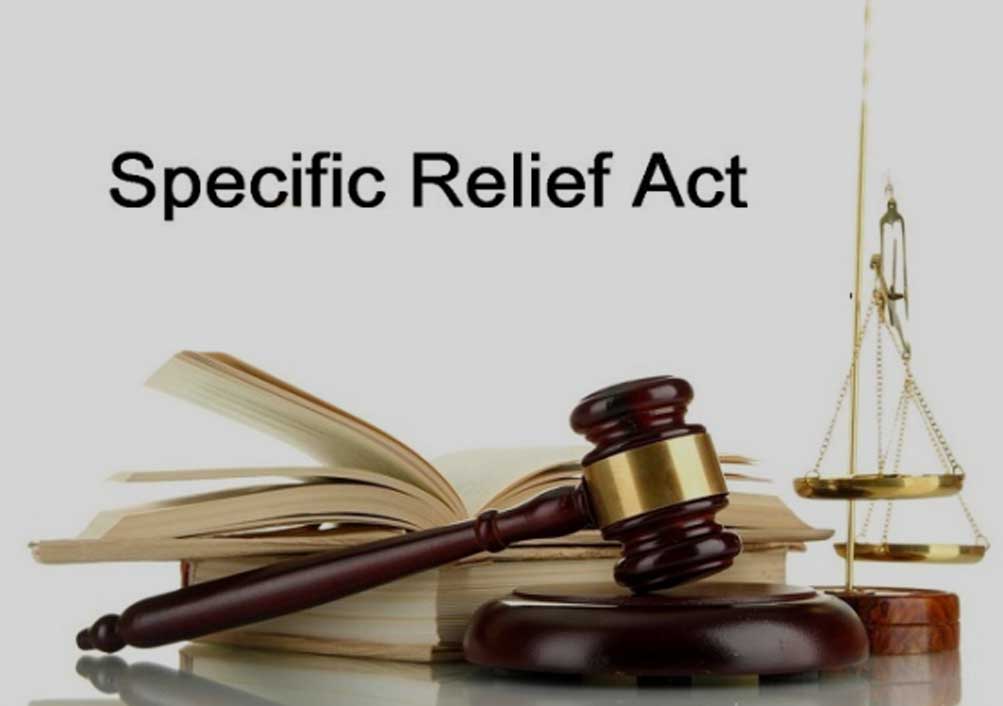In CR No.1243 of 2020 (O&M)-PUNJ HC- No appeal or review is maintainable against decree in suit u/s 6 SRA, as provided u/s 6(3), though HC in exercise of revisional jurisdiction u/s 115 CPC may interfere if strong case within parameters laid down for invoking powers under such provision is made out: P&H HC
Justice Alka Sarin [17-01-2023]

Read Order: Sukhwant Singh v. Lakhbir Singh @ Lakha & Others
Monika Rahar
Chandigarh, January 18, 2023: While dealing with a revision petition against the judgment and decree of the Trial Court dismissing the suit of the plaintiff-petitioner filed under Section 6 of the Specific Relief Act, 1963 along with consequential relief of permanent injunction, the High Court of Punjab and Haryana has held that the scope of a suit filed under Section 6 of the Specific Relief Act, 1963 is limited and the Trial Court is required to hold summary proceedings in relation to lawful possession of the aggrieved plaintiff and his dispossession therefrom in an unlawful manner.
“It is only when both the factors are established that the Trial Court is competent to issue a decree in relation to restoration of possession in favour of the plaintiff. No appeal or review is maintainable against such decree as provided under sub-section (3) of Section 6 of the Specific Relief Act, 1963 though the High Court in exercise of revisional jurisdiction under Section 115 CPC may interfere if a strong case within the parameters laid down for invoking powers under Section 115 CPC is made out”, the Bench of Justice Alka Sarin added.
The plaintiff-petitioner filed a suit under Section 6 of the Specific Relief Act, 1963 for possession of a house with the pleading that he was the owner of the house in question which was given to the plaintiff-petitioner by the Panchayat of Village Madh about 21 years ago. It was averred that the house in question was allotted to schedule caste community and that the plaintiff-petitioner was residing therein since the last more than 21 years.
It was further averred that in 2015 all the defendant-respondents forcibly entered the house of the plaintiff-petitioner and abused, insulted and beat the plaintiff-petitioner, his wife and children and they were forcibly thrown out from the house in question along with their articles. On the basis of these averments, a decree for possession and permanent injunction was sought.
The defendants submitted that the house in question was situated at Village Madh (Colony) while the family of the plaintiff-petitioner was residing in main Village Madh and that there was a distance of about one kilometer between the two villages. It was further stated that earlier the plaintiff-petitioner filed a civil suit for permanent injunction and tried to grab the property of the defendant-respondent No.6 and in that suit the plaintiff-petitioner could not prove his ownership over the suit property and did not appear before the Court and the said suit was dismissed.
The Trial Court dismissed the suit of the plaintiff-petitioner. Aggrieved, the plaintiff-petitioner filed the present revision petition.
The plaintiff-petitioner’s counsel contended that the Trial Court erred in dismissing his suit and that the possession of the plaintiff-petitioner over the house in question stood fully proved by the evidence on the record.
After hearing the parties, the Court observed that the scope of a suit filed under Section 6 of the Specific Relief Act, 1963 is limited and the Trial Court is required to hold summary proceedings in relation to lawful possession of the aggrieved plaintiff and his dispossession therefrom in an unlawful manner.
“It is only when both the factors are established that the Trial Court is competent to issue a decree in relation to restoration of possession in favour of the plaintiff. No appeal or review is maintainable against such decree as provided under sub-section (3) of Section 6 of the Specific Relief Act, 1963 though the High Court in exercise of revisional jurisdiction under Section 115 CPC may interfere if a strong case within the parameters laid down for invoking powers under Section 115 CPC is made out”, the Court observed.
Further, the Bench observed that the present revision petition was filed under Article 227 of the Constitution of India and not under Section 115 CPC and the courts have limited power under Article 227 of the Constitution of India and it cannot be invoked except for ensuring that the subordinate Court functions within its limits.
“Further, the High Court cannot exercise its power under Article 227 by interfering with a finding of fact and set aside the judgment of the Court below on merits”, the Court added.
Consequently, this revision petition under Article 227 of the Constitution of India was dismissed.
Sign up for our weekly newsletter to stay up to date on our product, events featured blog, special offer and all of the exciting things that take place here at Legitquest.




Add a Comment